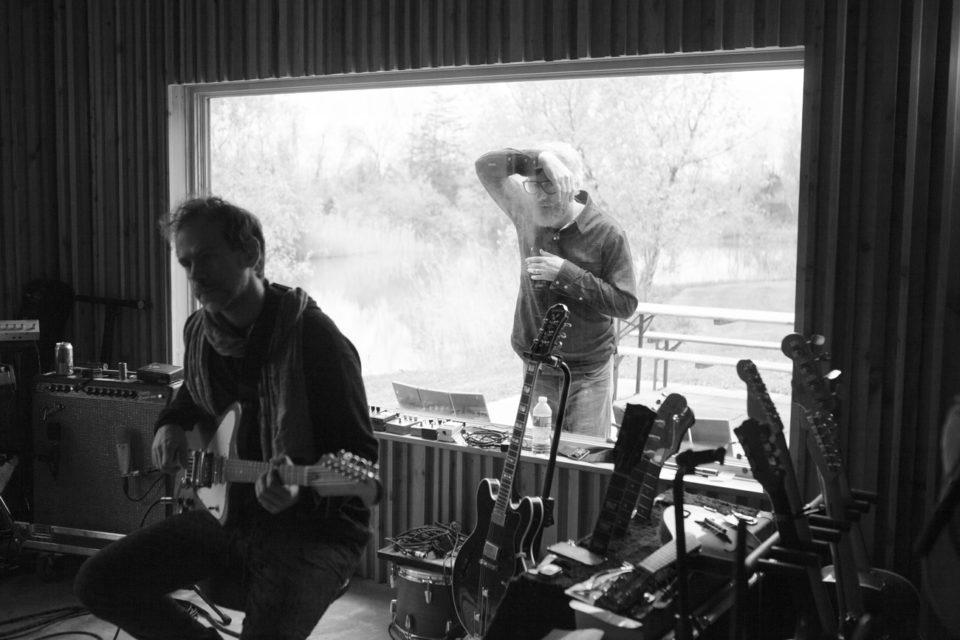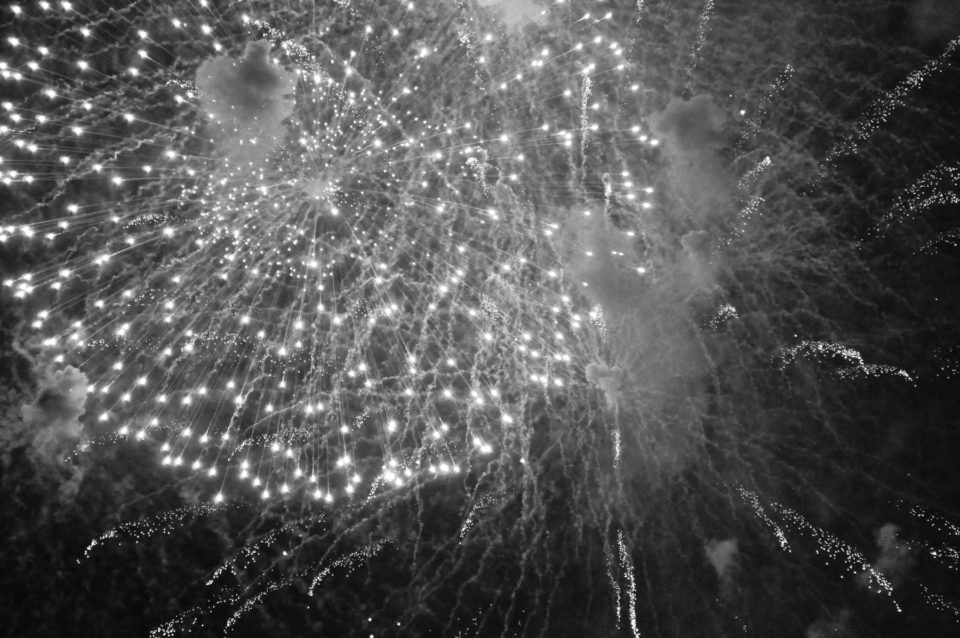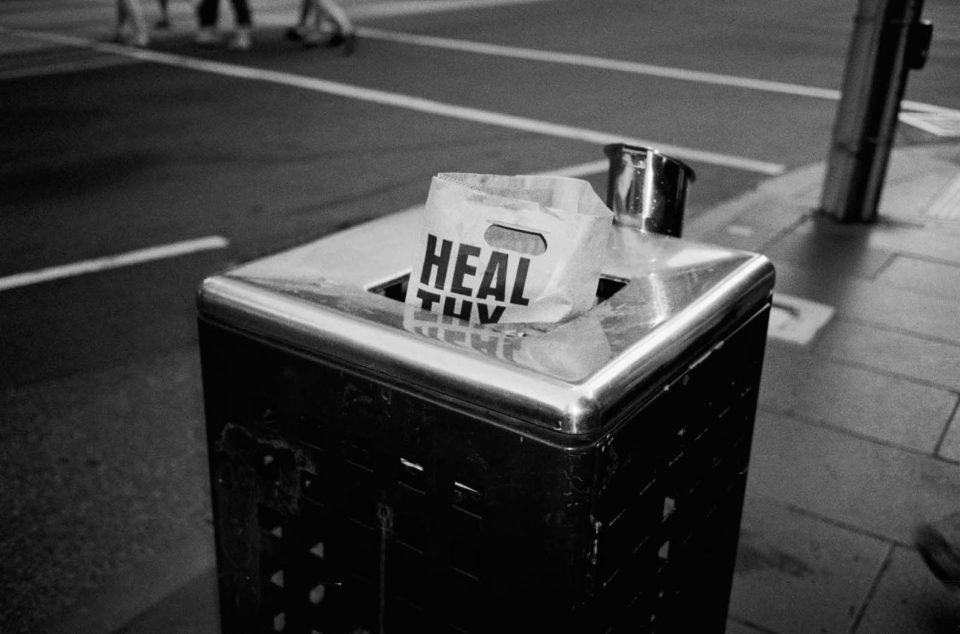The room spins around Sam Smith. Publicists, make-up, a film crew, management and record company attendees, media comings and goings timed to the second … it’s an almost Presidential atmosphere of significance. You’re meeting SAM SMITH.
In the middle of it all Smith himself is eerily poised, his odd, squared-off body posture adding to an alien calm that his pale blue eyes only intensify. So alien I’m put in mind of E.T. and that sense of someone fragile and powerful at once who has just landed from another world. There’s a reason why the room spins around him.
Smith may be one of the hottest pop singers on the planet right now, but his ambitions for his music seem to be quietly more profound. It’s not so much success he is seeking; it’s that indefinable thing we might call greatness.
Over two nights at the Sydney Opera House the singer gifts Australian audiences with a preview of what will be a much bigger and bolder global tour in support of his second album,
Sponsored by Nova-FM, and topped-and-tailed by a station DJ who lands all the associated sales notes like a karate chop, the show on the first night suffers from poor sound and a stiffness that Smith himself half-explains when he jests on stage about having had six months off on holidays and how “I almost forgot I sing for a living.”
His stage patter – underscored by a constantly present and supportive band, particularly Reuben James on low-rolling piano – has the air of an over-rehearsed yet genuinely felt conversation. With Smith telling his surprisingly intimate stories and piecing his songs into a larger personal narrative. It’s an evening, really, where the artist and the professional in him is puzzling out how to both relax and be in control.
The second night, with much improved sound, repeats the song order and anecdotal patter, but it’s a revelation. A truly great blue-eyed soul show. It demonstrates what can happen when a set packed with pop hits, heartfelt lyrics and great singing is embraced – and I mean embraced by the artist as much as the audience. The messages are simple but nonetheless transcendent: love hurts; love is all you need.
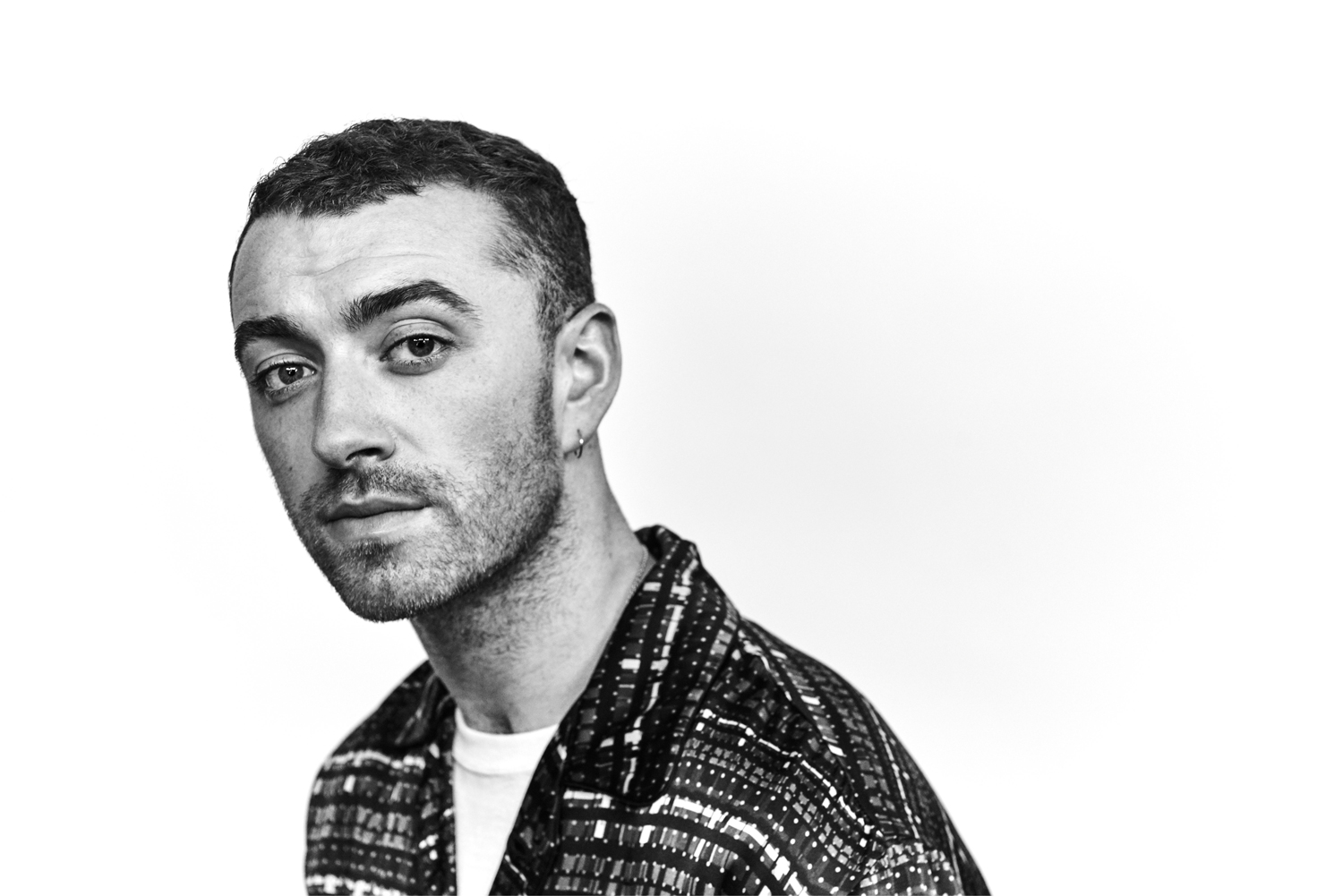
Credit: EMI Music
Smith has spoken of female singers dominating his listening as he grew up and learnt to sing himself, particularly Whitney Houston and Chaka Khan. He’s also cited more contemporary inspirations like Adele and Amy Winehouse. In his correspondence with great divas like these it’s not hard to read a few notes of empathetic pain.
But the nature of Smith’s singing also suggests another narrative, vocal textures that flicker between Anohni/Antony, Boy George and Bronski Beat’s Jimmy Somerville. Without needing to wave a rainbow flag, Smith’s voice conjures up something like the sound of arrival in these debts.
A recent interview with Elton John in the UK publication Attitude was as much a crowning of sorts as a revelatory conversation, lion king to prince of heartache.
With In the Lonely Hour and The Thrill of It All, the singer has two mega-platinum albums, a swag of Grammys and an Oscar for Best Original Song for ‘Writing’s on the Wall’ (his contribution to the James Bond film Spectre). At age 25, Sam Smith has, quite literally, the world at his feet.
Indeed, Smith seems incapable of not writing hits… song by song in the live arena his music is quite the humanist and romantic statement of being – ‘Stay with Me’, ‘Too Good at Goodbyes’, ‘I’m Not the Only One’, ‘Say It First’, ‘Burning’. For such an emotional and distinctive singer, Smith also contains his vocal style, resisting the temptation to over-sing.
Openly gay and often amusing, Smith’s on-stage, self-effacing anecdotes about his unrequited love for a straight man and another relationship last year “where I was dumped again” let everyone in to his story. Being gay becomes less of an issue than being a man of feeling. Perhaps that is why the packed-out shows each night at the Sydney Opera House verge on a form of church communion. Every soul can relate.
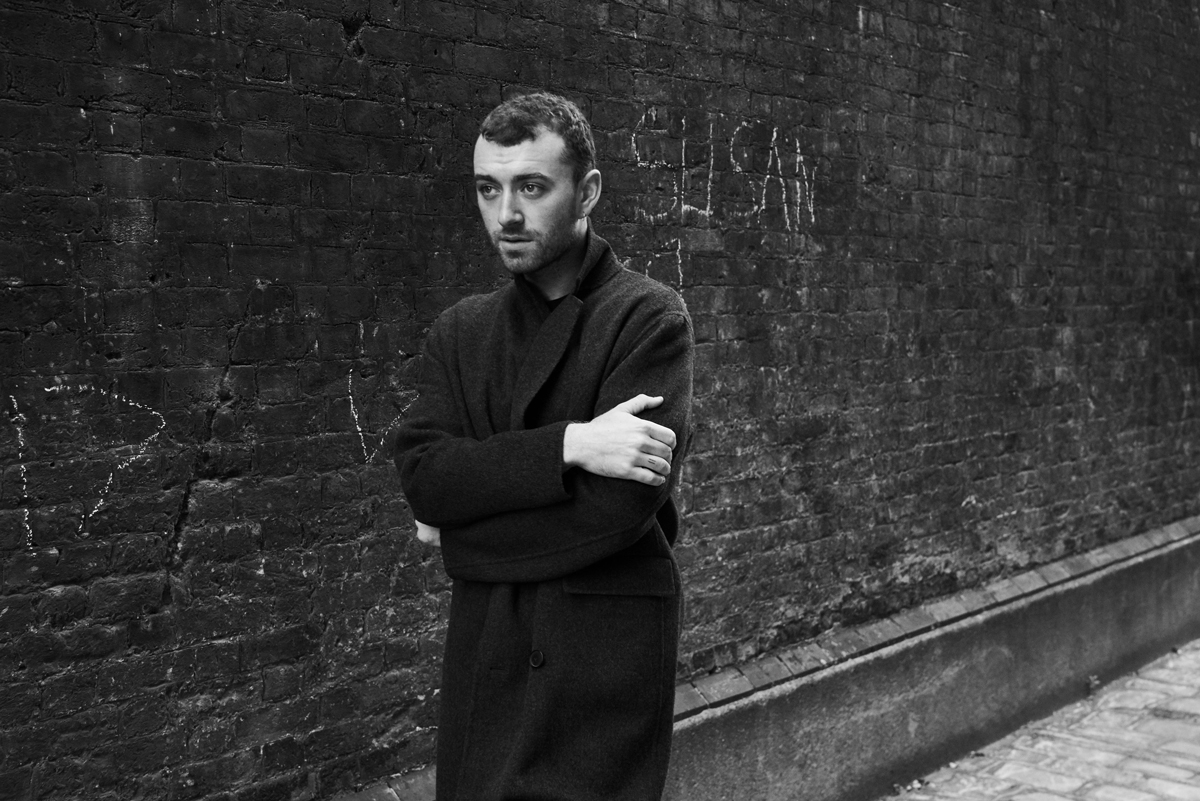
Credit: EMI Music
I really loved last night. One of the things that struck me straight off was how kind of casual you were – not that you weren’t trying, but that you weren’t in a hurry. And that is something that really impressed me. Is that something you’re conscious of?
Yeah. For sure. I think that’s come with just performing the last few years. It’s a big part of my singing now – something I try to remember every day before I get on stages is to breathe. Take really deep breaths and relax. Before I rushed through it because I was nervous. So I’m glad you thought that.
The show almost seemed otherworldly – like a Sinatra or those kind of old performers that knew how to control and connect with an audience steadily and build rather than rush in and slam every moment.
Thank you that’s really, really sweet of you. I love Frank Sinatra – more than anything. I just want people to have a soulful experience when I’m performing. It’s something that’s important to me. A lot of pop music now – and I love this about pop music (starts snapping fingers) – it’s very fast paced. It’s given to you very quickly. If my shows can be a time for everyone to take a deep breath and relax, that would be great.
In your song writing there is always a little interesting turn to your lyrics. You’re dealing with the classic pop love songs. They’re your songs. But a lot of people write those songs… and to be able to add that tiny bit more somehow… I’m not sure how much you write the lyrics and how much you think about that hat aspect – to take it a little notch further?
I write my lyrics, all my lyrics – and in collaboration with a few people. I’m so passionate about what I’m trying to say and how I am trying to say it. I’m passionate about space as well. I don’t want to say too much in my songs. I also think when people write lyrics sometimes they force themselves to sound more intelligent than they are. Or for it to sound very, very poetic. And it just doesn’t suit me. I think it’s amazing when artists do that, but for me… I speak quite basically. And I want my songs to be true to how I speak. So hopefully if I can say something in four or five words sometimes, that’s more powerful than saying it in more words.
I thought about the girl [Hannah Reid] from London Grammar in that respect and in relation to you, and how she manages to do the same thing – bring something special to something that in other hands could be more clichéd – and the quality of her voice with her lyrics too. She just seems to push it into new space. And surprise you, actually. That’s the interesting thing.
Yeah. Yes. Well a lot of my songwriting, the way that I write my songs, is we will find the chords that we like and then we just put the microphone on and I’ll sing. And I’ll sing gobbledygook. And then when you listen back to the recording you can actually hear words in the sounds that I am making. So it’s quite strange. It’s almost like the lyrics are already there in the melodies that I write sometimes.
That’s almost like the Beat [poetry] thing of the unconscious mind rising.
Yeah, completely. I think different sounds and different notes – when you’re singing them – work better with certain words.
An obvious example might be ‘Too Good at Goodbyes’. I thought about how much your songs are about love – yet particularly with that song, there’s this irony of having to recognize that maybe there’s something inherently solitary about who you are, and the nature of what you are as a singer and an artist.
Completely. Completely. That song as well is… delusional. Because I’m not too good at goodbye, I’m awful at goodbyes. And I hate them. It’s me trying to convince myself in that moment that I’m going to be okay. And that I’ve got thick skin and that I’ve done this before. That every relationship I’m in hurts in a different way.
I thought about that in relation to the American director John Cassavetes. There is a film of his called Love Streams. In it he deals with the notion of love that… once you’ve had that love experience it might transmute into hate or friendship or memory, but a real love experience never leaves you. And that’s obviously something you want to somehow echo or connect with as a singer, a commercial musician that comes into people’s lives every day.
Yeah completely, that’s 100% what I want to do.
I don’t know about it being a responsibility, but…
It’s exhausting (laughs). What I do find exhausting sometimes is to stay soft as a person. Sometimes I think if I didn’t show all my emotions, if I thought of my music as a business – and ‘I need to make type of song and this type of song, and then do this amount of promo’ – if I thought in a more business sense, I think I would maybe be able to separate my work from my personal life. And maybe be happier sometimes. But I can’t. It’s important to me to remain wounded and human. In a job that is very robotic and soulless actually.
Well… there’s a lot of ache in your music, for sure.
Thank you.
[Laughing] Without it being a downer! There’s uplift. It’s the classic singer thing, isn’t it? The bird in the cage. And the longing that that suggests.
Oh completely. And the insecurities. I think… I think anyone who wants to stand on stage in front of 1000s of people and talk about their feelings and get that round of applause has got to have a little bit of a hole inside of them that they can’t fill.
It’s almost a compulsion though, that thing, too. It’s something you choose to do, but it’s something you can’t help but do too.
Completely. It’s kind of attention-seeking actually.
[Laughing] Well there is that great Neil Young line from ‘On the Beach’: “I need a crowd of people, but I can’t face them day to day.”
Whoa, I love that.
Being a writer, my work tends to be personal. And the same questions come up. Why do I do that? And also – which must be an important part of your creativity – failure. The fact that there will be moments where you necessarily embarrass yourself.
Oh, completely. All the time. I mean even the last few years… my speech that I messed up at the Oscars was one of those moments. It’s horrible failing. When I’ve tried so hard to keep everything together, and then you slip up. And there’s no room for slipping up. It was a really, really crazy experience – but also made me delve into that whole side of me. This vulnerability and what I was as an artist. And what I want to put across. And if I am going to try and be a role model, what kind of role model am I gonna be? Yeah. It made me embrace my own imperfections I think. And how little I know about things. And how much I have to learn. And to try and become a student again, I guess.
What did you decide about what kind of role model you wanted to be?
That I don’t want to be a role model (laughs) in a way, I just want to be myself. Flaws and all. And hopefully that would inspire some people. Yeah. I think I’ve just got to live my life and be selfish in that respect. If you’re constantly looking at what you’re saying and editing your life, I don’t think that’s real. And I think that’s the reason why we’re in a situation now with kids looking up to these billboards of these perfect bodies and these perfect lives – which are just not perfect.
Sam Smith returns to Australia to end his The Thrill of It All world tour in November.



